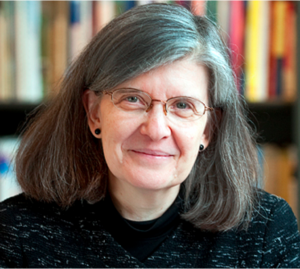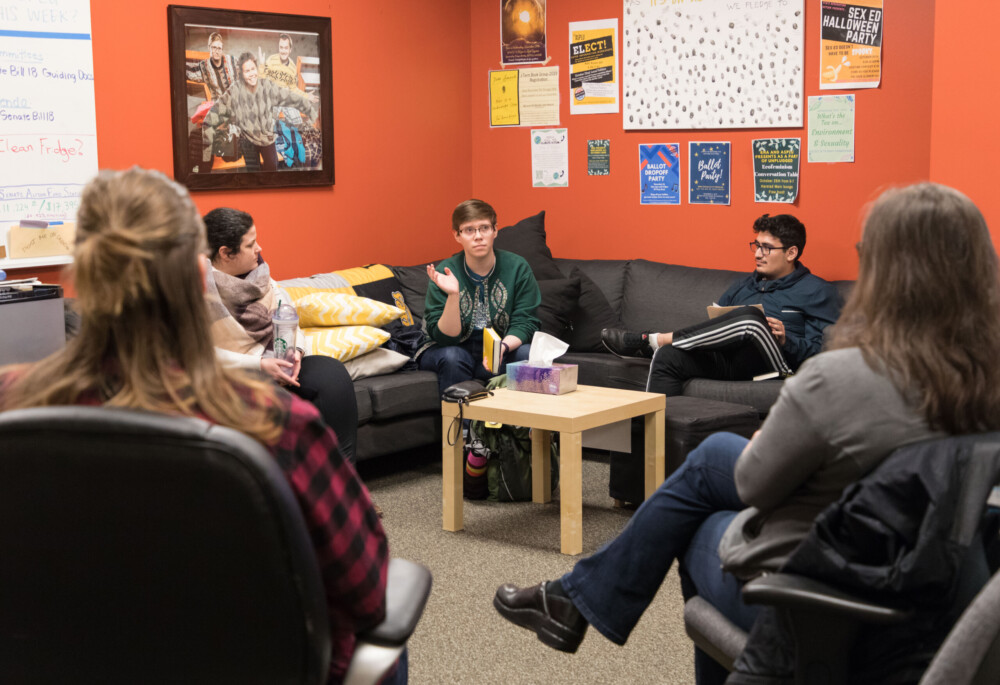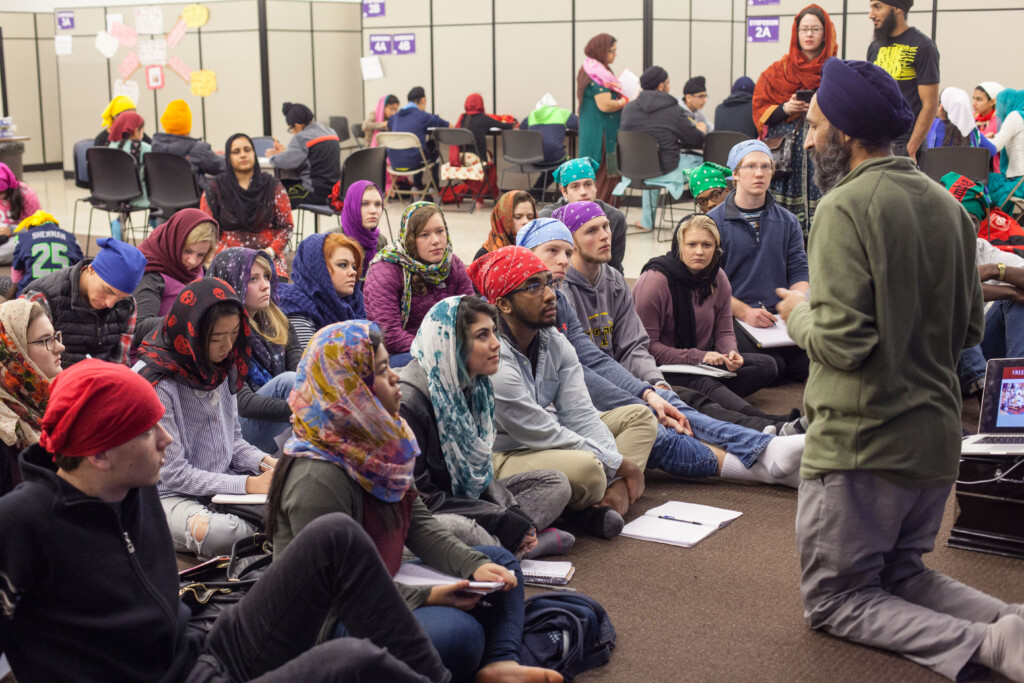Gaps and Gifts
By Patricia O’Connell Killen
Originally Published 1999
“The Artist, the thinker, the hero, the saint —who are they, finally, but the finite self radicalized and intensified? . . . The difference between [them] and the rest of us . . . is a willingness to undergo the journey of intensification into particularity to the point where an originating sense for the fundamental questions and feelings that impel us all, and a rare response in thought and feeling to those questions, is experienced —and often experienced as some kind of gift come ‘unawares.’”
David Tracy, Analogical Imagination
“When the two-dimension figure in Flatland meets the three-dimensional sphere, it neither sees a sphere nor has any sense that there is more than what it sees —namely, a two-dimensional circle, that piece of a sphere its plane runs through.”
Robert Kegan, ln Over Our Heads:The Mental Demands of Modern Life
In the gap between Robert Kegan’s “two-dimensional circle” from Edwin Abbott’s Victorian philosophical “romance” Flatland and David Tracy’s “journey of intensification into particularity” lies the passion and purpose of the humanities. Teaching humanities is about walking with students into the gap between their particular Flatland and a possible journey of intensification into particularity, standing there with them, and providing the support and challenge that makes it possible for them —if they become fascinated— to see, feel, sense, think, and act in new ways. In this gap between Flatland and the journey of intensification into particularity resides the possibility for students to develop capacities for discrimination that constitute the difference between hostility and hospitality, fear and courage, isolation and community, self-absorption and self-transcending delight —discriminations that make the difference between a richer and a more diminished life.

The capacities for such discrimination do not come at will or on demand. Even more, they do not develop if one endures humanities courses only for some other end. They begin as part of insight. Insight arises when one has been grasped by a question or problem, lured into savoring an idea, stunned into stillness by language or art. Insight, especially powerfully transformative insight, is more than cognitive or intellectual, it involves one’s entire being. Transformative insight tends to arise when a human being is in that all too rare and yet peculiarly human state of being fascinated by the other in and for itself. In that exquisite moment, one knows. When I invite my students into the space between their particular Flatland and journey of intensification into particularity my purpose is to increase the odds for such transformative insight to occur.
Anyone who teaches the liberal arts knows that it takes a well-honed sense of irony, profligate hope, and ruthless self-honesty to maintain such a vision of education’s purpose. To start with the self-honesty. If my purpose as a teacher is to invite my students to walk into the gap between their particular Flatland and journey of intensification into particularity, the very act of teaching requires that I do the same. lt requires that each time l walk into the classroom I attend cognitively and affectively to the chasm between what l desire for my students and what is possible in a course as students pursue their own desires. Finally, my students are free. The asceticism of teaching entails respecting their freedom.
While respecting the freedom of my students is prior to all else in teaching humanities, there still is much that I do to invite them into the space where the power of the humanities resides. I introduce them to the field of American religious history in the most engaging way possible, letting them see my own fascination with it. l show them issues; require them to translate material from one frame of reference to another using simple and then more complex conceptual schemes; provoke them to query the text, material, and concepts; expect accurate and empathetic description of the religious world views of others, even those they find objectionable; and finally, confront them with the task of making cogent and original interpretive claims of their own, claims defensible not by appeal to an individual’s “opinion” but by appeal to the material.

I hesitate to list what l do because such a list is too quickly embraced or dismissed as part of a basic skills orientation. Certainly the pragmatically minded can make a case that the abilities I ask my students to enact constitute useful skills for getting on in the world. Conceiving teaching humanities that way, however, yields too easily to the reductionistic instrumental reason that permeates all too much of our society today, including higher education. At the same time, purists who conceive the task of higher education solely in terms of presenting their disciplines with rigorous faithfulness dismiss lists such as mine in the name of disciplinary integrity or academic freedom. Both responses, however, are off the mark. Both responses miss the profoundly human drama that real learning entails, a drama of dignity, courage, risk, fear, loss, accomplishment, and sometimes surprising gifts.
To forget or to ignore that human drama eviscerates the teaching of the liberal arts. Such forgetfulness characterizes too many contemporary visions of higher education. When education is conceived in terms of the instrumental reason of a market-driven world, students become consumers, acquiring discrete packets of knowledge or skills. Education is reduced to training. Higher education becomes a Flatland where costs are conceived in terms of time, inconvenience, and money, but where the student as person —because in a two-dimensional world there are no persons— remains untouched. Ironically, the same kind of instrumental reason permeates many defenses of disciplines as communities of practitioners of procedures for producing new knowledge. Such conceptions of higher education are deadly for our students, for faculties, and for our civilization.
In discounting what the liberal arts value most —humane persons— such visions ignore the fundamental human drama involved in learning. To ask students to learn anything is to ask them, in another of Robert Kegan’s images, to “leave home,” and to do so not once but repeatedly. Our students come to us with furnished and familiar mental homes. When we ask them to think (which is what the humanities at their best do) we are asking them “to go out of their minds” (272). We expect our students not only to learn new information, procedures, and theories, but to “develop more complex ways of thinking and knowing” (273).
Developing more complex ways of thinking and knowing, of perceiving and constructing experience and its meanings, changes our students irrevocably. This is the kind of knowing that cannot be unknown. For our students this is a process of reconstituting themselves as human beings, a process of disintegration and reintegration, for some welcome, for others not. For all, however, it is a process that usually involves their experiencing a sense of tension and even betrayal of family, peer group, social class, ethnic community, religious denomination, or political ideology. Whether and how students negotiate this process depends on many things: among them their perceptive acumen, the strength of their bond to a particular anchoring group, the capacity or willingness of those groups to welcome or tolerate new ways of thinking, and the possibilities for forming an alternative community that supports the life of the mind.

Two items on the list raise particular complications to teaching humanities at PLU. First, a significant and growing number of our students come to us with strong bonds to fundamentalist and Pentecostal subcultures, many of which traditionally have focused their identity around intentional resistance to new ways of thinking. Secondly, the dominant student culture at PLU is relentlessly anti-intellectual. Both factors militate against the purposes of the liberal arts and the mission of the university. PLU’s credibility as a university in the twenty-first century will depend in large part on the way faculty, students, and administrators handle these nuances to the already formidable challenges of creating a context for learning.
Anyone who has had occasion to listen to freshmen students talk in an unguarded manner during January-term about being at home over Christmas break after their first semester at PLU gets a glimmer of the human costs of education. To have an idea and to know one has an idea can be a fearsome thing. To think one’s own thoughts and be aware that one is thinking can be, at the least, unnerving. To formulate a question and to know that one’s question is good is at once exhilarating and terrifying. To be able to articulate why one’s question is good is to have passed a point of no return. In all of these acts a new and more complex consciousness emerges in a person, a consciousness that offers both promise and peril.
The promise includes richer, more nuanced relationships to whomever and whatever is, including oneself; the freedom to choose commitments out of inner integrity instead of imposed obligation; the experience of one’s existence as gift; and the capacity for self-transcending delight in the other which makes genuine creativity and community possible. The peril includes loss of the comfort of a host of absolute certitudes; the burden of self-responsibility; the knowledge that one’s knowing can be skewed and distorted; and the realization that one’s actions, motivated by the best of intentions, cause harm. The wager of the humanities has been and still is that the promise outweighs the peril.
Despite the challenges and ironies of teaching humanities in the current climate of higher education, I persist in my profligate hope. Teaching humanities matters. I continue to profess a discipline that many of my students presume to be useless, establish and hold them to standards of excellence, and persistently encourage critical and original thinking. In so doing I point students toward the gap between their Flatland and a possible journey of intensification into particularity that is the heart and soul of the humanities.
In the space of the gap some students become fascinated. Fascination overcomes fear. Insight arises, capacity for discrimination develops. Students begin to notice themselves perceiving and thinking and relating differently. Such is the beginning to “an originating sense for the fundamental questions and feelings that impel us all.” That sense is in its own way a “gift come ‘unawarest.’”


